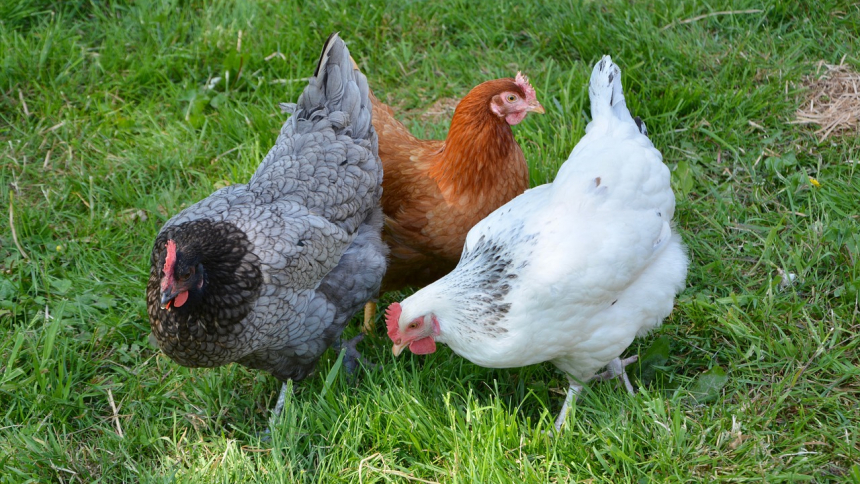Newcastle disease virus (NDV) is an important pathogen impacting poultry flocks worldwide. Once introduced, NDV causes highly mortality in flocks (up to 100%) and massive economic losses. NDV greatly impacts smallholder farmers in low and middle income countries, where the majority of poultry is raised in backyard settings. To improve poultry productivity in these settings and the livelihoods of smallholder farmers, it is crucial to better understand the natural susceptibility of the innate immune responses in various poultry breeds so that susceptibility can be reduced through selective breeding strategies.
PSU researchers Megan Schilling, Sahar Memari, Meredith Cavanugh, Robab Katani, Jessica Radzio-Basu, and Vivek Kapur investigated the transcriptional responses of innate immune genes in inbred Fayoumi and Leghorn chickens to identify the mechanisms that contribute to previously documented differences in NDV susceptibility between these breeds. The Fayoumi breed, which originated in Egypt, has been reported to have reduced susceptibility to NDV as compared to the Leghorn breed, of European origin, which is a common breed used in commercial farming today. Instead of using hatched chickens, the team made use of the chicken embryo model developed by Schilling et al 2018.
Schilling and her colleagues found five core innate genes that were upregulated in the chicken embryo regardless of the breed subline investigated (Mx1, IRF1, IRF7, STAT1, SOCS1). Additionally, a handful of genes were differentially expressed both at the breed and subline level. The genes TRL3, NOS2, LITAF, IFIH1 were differentially expressed in the Fayoumi breed and IL8, CAMP, and CCL4 were differentially expressed in the Leghorn breed. Within the sublines investigated, there was noticeable variation in the immune response which the researchers hypothesized. For one Fayoumi subline (M5.1) a series of interleukin and cytokine genes were upregulated whereas in another subline (M15.2) the MYH15, CD40, CAMP, and MFKB genes were upregulated. The research team believes that the subline-dependent differences observed in the innate immune responses may be impacted by the MHC. Within the Leghorn sublines, fewer genes were differentially expressed. Upregulated genes included CD80, IFIH1, and MYD88 in the Ghs13 subline, and only NOS2 in the Ghs6 subline.
This research provides valuable insights into possible genetic markers for susceptibility to NDV which could be used to improve poultry production through selective breeding strategies, both in smallholder and commercial settings. This study also provided insight into the under-investigated innate immune response to NDV in the chick embryo and the results support recent literature that have identified a set of core conserved genes in the immune responses to NDV. In the future, the innate immune response to NDV will need to be investigated in outbred poultry lines and embryo model results should be linked with susceptibility studies in hatched chickens to develop a better picture of the spectrum of NDV susceptibility across poultry lines.
Synopsis written by Catherine Herzog
Publication Details:
Megan A. Schilling, Sahar Memari, Meredith Cavanaugh, Robab Katani, Melissa S. Deist, Jessica Radzio-Basu, Susan J. Lamont, Joram J. Buza, Vivek Kapur.
Conserved, breed-dependent, and subline-dependent innate immune responses of Fayoumi and Leghorn chicken embryos to Newcastle disease virus infection.
https://www.nature.com/articles/s41598-019-43483-1
Journal: Nature Scientific Reports
DOI Reference 10.1038/s41598-019-43483-1




